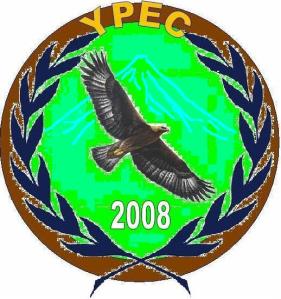G.R. No. 170338 December 23, 2008
Nachura, J. En Banc
SANTIAGO
JAVIER RANADA and OSWALDO D. AGCAOILI vs. THE SENATE OF THE REPUBLIC OF THE
PHILIPPINES, REPRESENTED BY THE SENATE PRESIDENT THE HONORABLE MANUEL VILLAR
G.R. No. 179275 December 23, 2008
Nachura, J. En Banc
Facts:
Tapes ostensibly
containing a wiretapped conversation purportedly between the President of the
Philippines and a high-ranking official of the Commission on Elections
(COMELEC) surfaced. The tapes, notoriously referred to as the "Hello
Garci" tapes, allegedly contained the President’s instructions to COMELEC
Commissioner Virgilio Garcillano to manipulate in her favor results of the 2004
presidential elections. These recordings were to become the subject of heated
legislative hearings conducted separately by committees of both Houses of
Congress.
In one of the
Senate’s plenary session, a lengthy debate ensued when Senator Richard Gordon
aired his concern on the possible transgression of Republic Act (R.A.) No. 4200
if the body were to conduct a legislative inquiry on the matter. Senator Miriam
Defensor-Santiago delivered a privilege speech, articulating her considered
view that the Constitution absolutely bans the use, possession, replay or
communication of the contents of the "Hello Garci" tapes. However,
she recommended a legislative investigation into the role of the Intelligence
Service of the AFP (ISAFP), the Philippine National Police or other government
entities in the alleged illegal wiretapping of public officials.
Petitioners
Santiago Ranada and Oswaldo Agcaoili, retired justices of the Court of Appeals,
filed before this Court a Petition for Prohibition with Prayer for the Issuance
of a Temporary Restraining Order and/or Writ of Preliminary Injunction, docketed
as G.R. No. 179275, seeking to bar the Senate from conducting its scheduled
legislative inquiry. They argued in the main that the intended legislative
inquiry violates R.A. No. 4200 and Section 3, Article III of the Constitution.
Issue:
Whether
or not the publication of the Rules of Procedure in the website of the Senate,
or in pamphlet form available at the Senate, is sufficient compliance of the
publication requirement prior to the effectivity of laws and other issuances.
Ruling:
The Supreme
Court (hereafter Court) dismissed the petition in G.R. No. 170338 but granted the
petition in G.R. No. 179275. A writ of prohibition was issued enjoining the
Senate of the Republic of the Philippines and/or any of its committees from
conducting any inquiry in aid of legislation centered on the "Hello
Garci" tapes.
The Court held
that the Senate cannot be allowed to continue with the conduct of the
questioned legislative inquiry without duly published rules of procedure, in
clear derogation of the constitutional requirement.
Section 21,
Article VI of the 1987 Constitution explicitly provides that "[t]he Senate or the House of
Representatives, or any of its respective committees may conduct inquiries in
aid of legislation in accordance with its duly published rules of procedure."
The respondents
in G.R. No. 179275 admitted in their pleadings and even on oral argument that
the Senate Rules of Procedure Governing Inquiries in Aid of Legislation had
been published in newspapers of general circulation only in 1995 and in 2006.
With respect to the present Senate of the 14th Congress, however, of which the
term of half of its members commenced on June 30, 2007, no effort was
undertaken for the publication of these rules when they first opened their
session.
The phrase
"duly published rules of procedure" requires the Senate of every
Congress to publish its rules of procedure governing inquiries in aid of
legislation because every Senate is distinct from the one before it or after
it.
Respondents
justify their non-observance of the constitutionally mandated publication by
arguing that the rules have never been amended since 1995 and, despite that,
they are published in booklet form available to anyone for free, and accessible
to the public at the Senate’s internet web page.
The Court did
not agree. The absence of any amendment to the rules cannot justify the
Senate’s defiance of the clear and unambiguous language of Section 21, Article
VI of the Constitution.
Justice Carpio’s
response to the same argument raised by the respondents is illuminating:
The publication of the Rules of
Procedure in the website of the Senate, or in pamphlet form available at the
Senate, is not sufficient under the Tañada v. Tuvera ruling which requires
publication either in the Official Gazette or in a newspaper of general
circulation. The Rules of Procedure even provide that the rules "shall
take effect seven (7) days after publication in two (2) newspapers of general
circulation," precluding any other form of publication. Publication in
accordance with Tañada is mandatory to comply with the due process requirement
because the Rules of Procedure put a person’s liberty at risk. A person who violates
the Rules of Procedure could be arrested and detained by the Senate.
The invocation
by the respondents of the provisions of R.A. No. 8792, otherwise known as the
Electronic Commerce Act of 2000, to support their claim of valid publication
through the internet is all the more incorrect. R.A. 8792 considers an
electronic data message or an electronic document as the functional equivalent
of a written document only for evidentiary purposes. In other words, the law
merely recognizes the admissibility in evidence (for their being the original)
of electronic data messages and/or electronic documents. It does not make the
internet a medium for publishing laws, rules and regulations.
Given this
discussion, the respondent Senate Committees, therefore, could not, in
violation of the Constitution, use its unpublished rules in the legislative
inquiry subject of these consolidated cases. The conduct of inquiries in aid of
legislation by the Senate has to be deferred until it shall have caused the
publication of the rules, because it can do so only "in accordance with
its duly published rules of procedure."













No comments:
Post a Comment